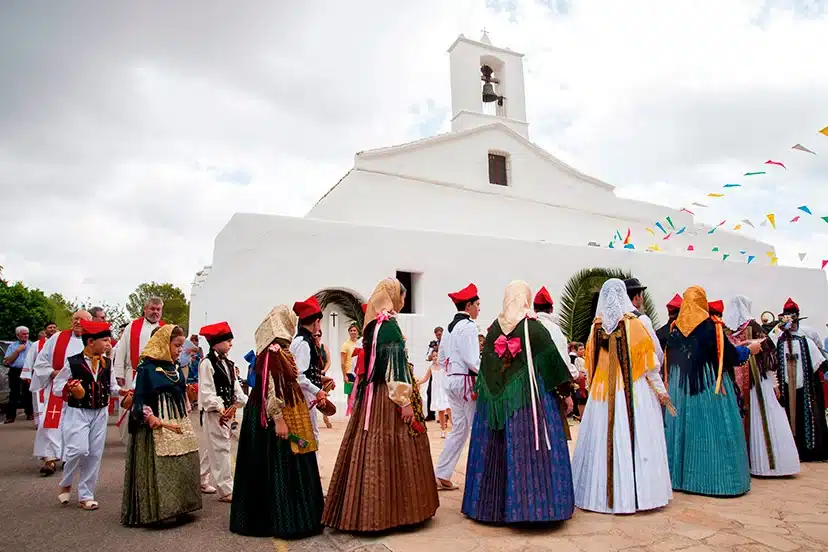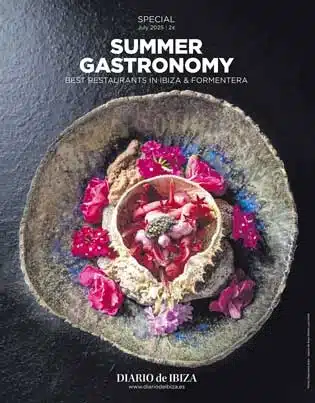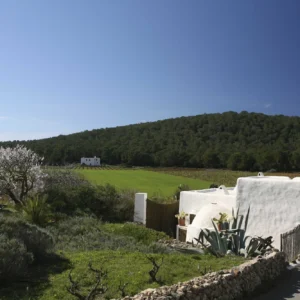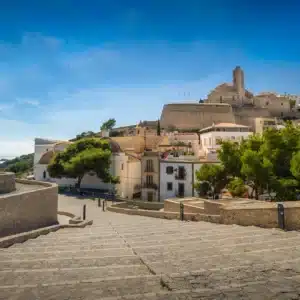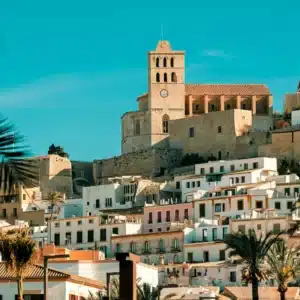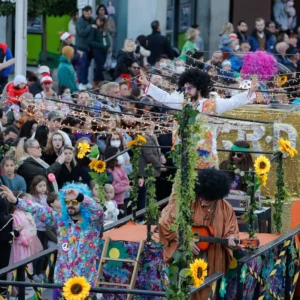Ibizan tradition is deeply intertwined with the island’s rich cultural heritage, and one of its most iconic expressions is the ‘ball pagès‘ (peasant dance). This centuries-old dance remains a vital link between Ibiza’s past and present, offering a captivating glimpse into the island’s rural history, its elaborate costumes, traditional jewellery, and the unique music that has shaped its identity over time.
The ‘Ball Pagès’: an ancestral dance
The ‘ball pagès’ is more than just a performance; it represents a living link between Ibiza’s past and present. With its roots potentially reaching back to the 13th century, this dance originated in rural communities, where it was performed around wells and fountains during festivals and celebrations. Though its exact origins remain uncertain, experts suggest it may have been influenced by both Arab and Catalan traditions.
The dance itself is a form of courtship, with the man inviting the woman to join by vigorously clicking his castanets. The contrast between the male and female dancers is striking: while the man performs energetic leaps and wide strides, the woman remains composed, executing small, graceful movements in a symbolic gesture of modesty. This duality in the dance—the forcefulness of the man and the calm elegance of the woman—creates a dynamic spectacle that continues to captivate audiences.
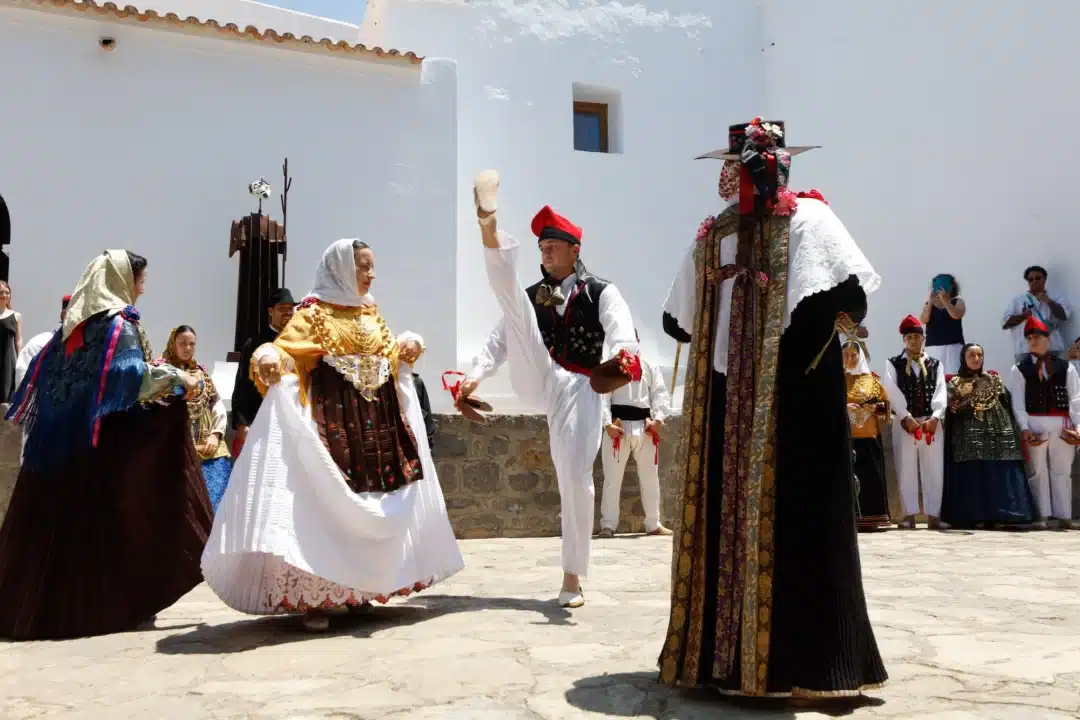
Traditional costumes: a showcase of identity
The ball pagès is not just about movement; it is also a visual feast of Ibizan tradition, with costumes playing a crucial role in expressing the island’s heritage. Women’s traditional attire is particularly elaborate, often consisting of several layers of underskirts, which could be as many as twenty in the most ceremonial outfits. The bodice is intricately embroidered, and over the shoulders, women wear a silk shawl.
The colours and details of these costumes are symbolic. For example, women’s headgear, such as a straw hat adorned with ribbons, traditionally indicated their marital status—blue for married women, green for fiancées, and pink for singles. In festive contexts, women may wear the white dress, a popular choice for performances of the ball pagès today. The ‘emprendada‘, a dazzling set of jewellery made from gold, silver, and coral, often passed down through generations, is worn as a symbol of family heritage and social status. Each piece of this jewellery holds significance, showcasing a woman’s place in society and her family’s wealth.
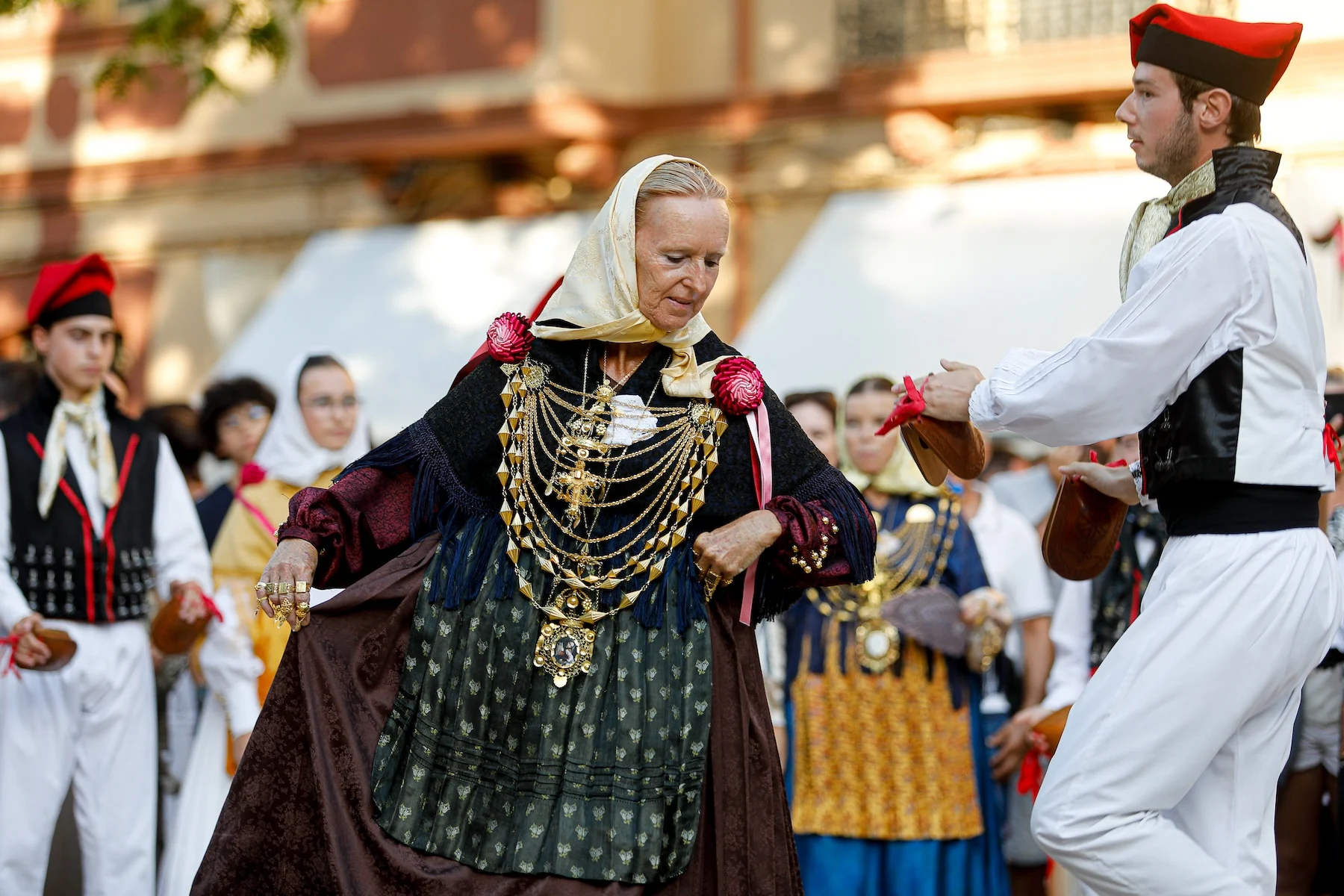
In contrast, the men’s attire is more straightforward but no less symbolic. Men wear white trousers and shirts, a red sash, and a black waistcoat. A ‘barretina‘ (a red woolen cap) completes the outfit, and in some regions, a yellow scarf is added for formal occasions.
The sound of tradition
Music is integral to Ibizan tradition, and the sounds that accompany the dance are as distinctive as the performance itself. The rhythmic clicking of the ‘castanyoles‘ (castanets) sets the pace, alongside the beat of the ‘tambor‘ (drum), traditionally made of pinewood and covered with animal skin. The ‘flaüta‘, a wooden flute, adds a melodic undertone, while the ‘espasí‘, a sword-shaped metal percussion instrument, produces a sharp, ringing sound that elevates the intensity of the performance.
These instruments are unique to Ibiza, and their sounds help distinguish the ball pagès from other Mediterranean folk traditions. The drum and castanets provide the essential percussion, driving the energetic leaps of the male dancers, while the flute and ‘espasí’ lend a more mystical quality to the music, reflecting Ibiza’s ancient cultural influences.
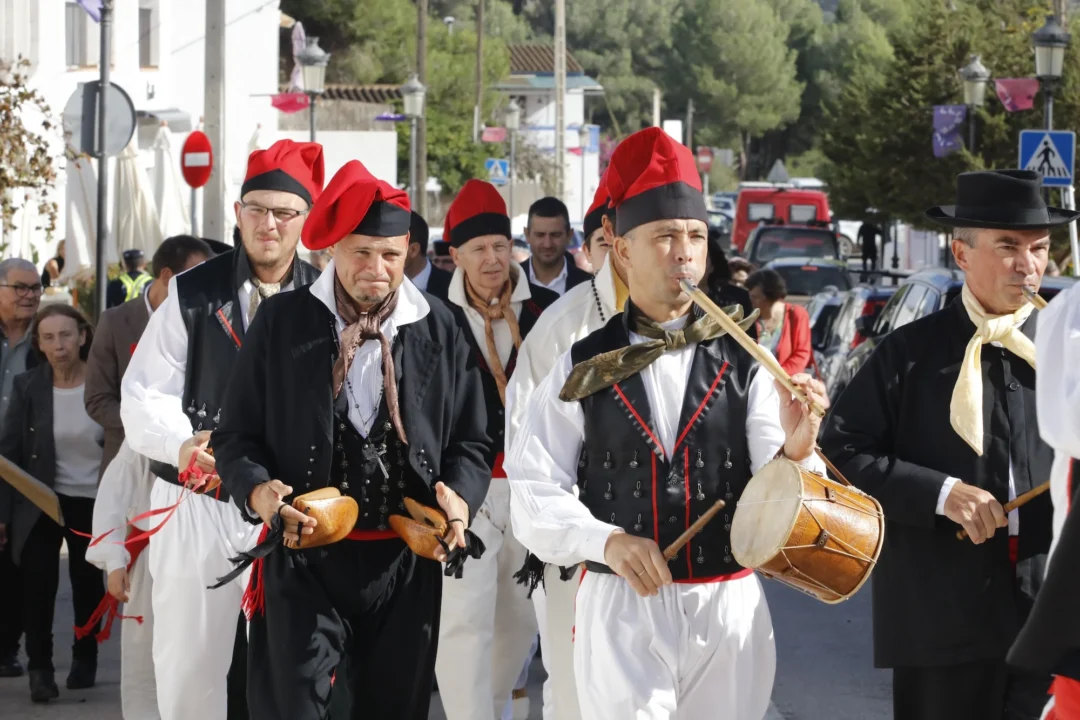
Preserving Ibizan Tradition for future generations
In modern times, the Ibizan tradition is experiencing a revival, with a growing interest among younger generations eager to keep their cultural heritage alive. Local dance groups, known as ‘colles‘, play a significant role in preserving and promoting this tradition. These groups, such as the Grup Folklòric Sant Josep de sa Talaia and the Colla de Sant Jordi, among many others, not only perform at local festivals but also represent Ibiza internationally, participating in cultural festivals around the world.
Throughout the year, visitors to Ibiza can witness the ball pagès at various events. Performances are often held in the church squares of some towns during summer evenings, as well as during traditional festivals. The dance is also a highlight of many of the island’s patron saint festivals, ensuring that both locals and tourists have ample opportunity to experience this cornerstone of Ibizan tradition.
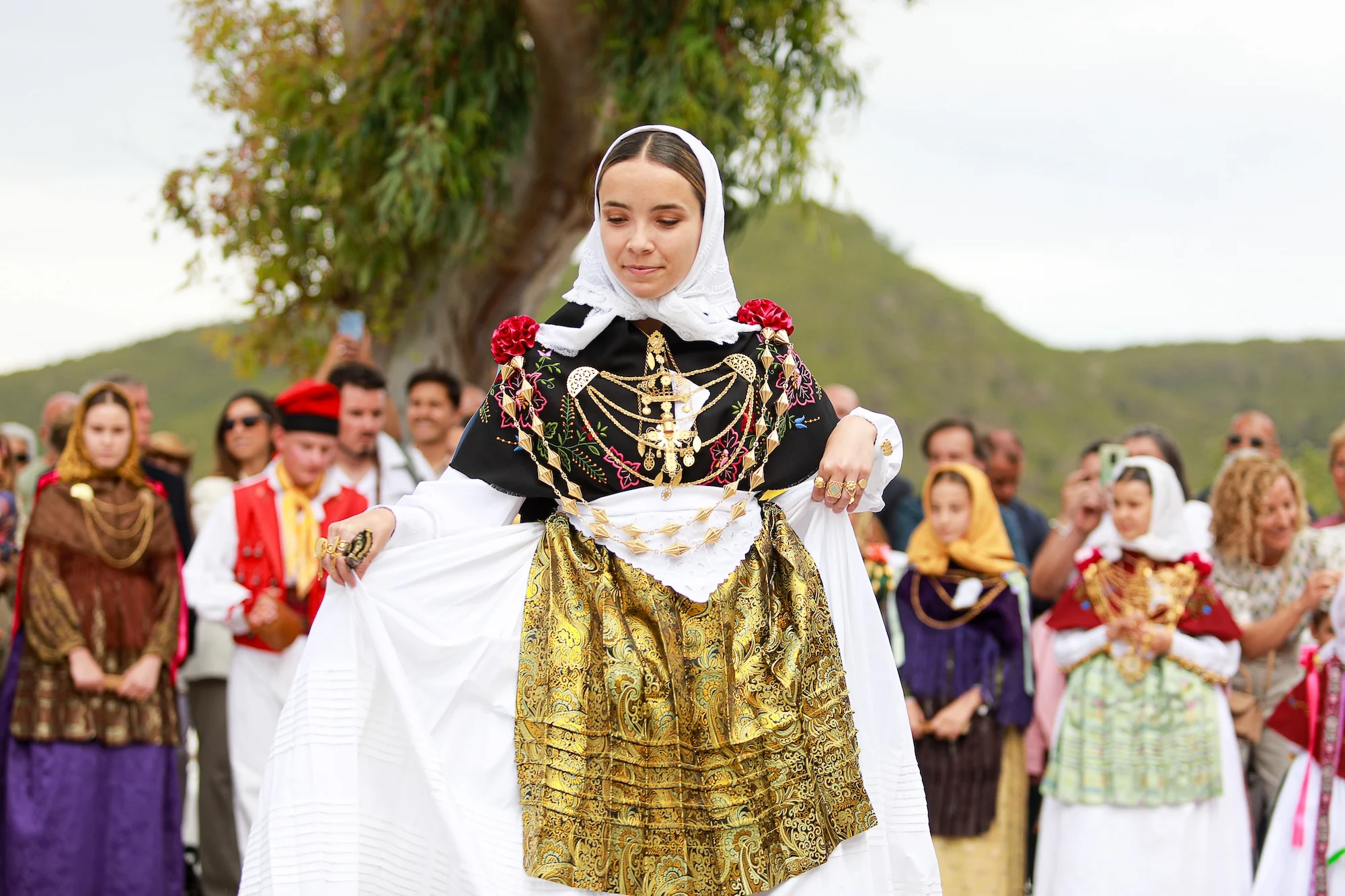
Ibizan tradition is still alive today and is testimony to the island’s rich history and cultural identity. The intricate costumes, symbolic jewellery, unique instruments, and the dynamic interaction between male and female dancers all contribute to an experience that is deeply rooted in the island’s past, yet still very much alive today. Whether you are watching the ball pagès during a local festival or exploring the island’s many historical wells and churches, engaging with Ibizan tradition offers a glimpse into the true soul of the island.
For anyone seeking to connect with Ibizan tradition, the island provides a powerful reminder of its enduring commitment to preserving its cultural heritage for future generations.

